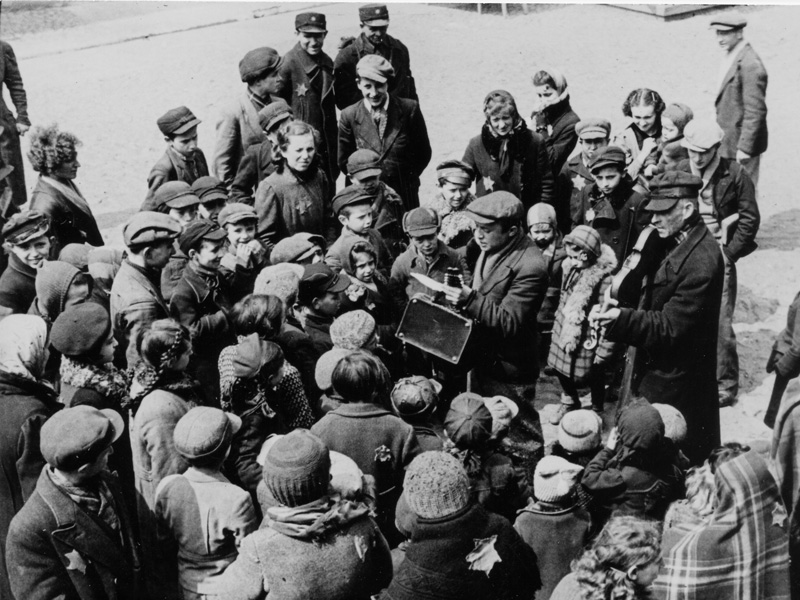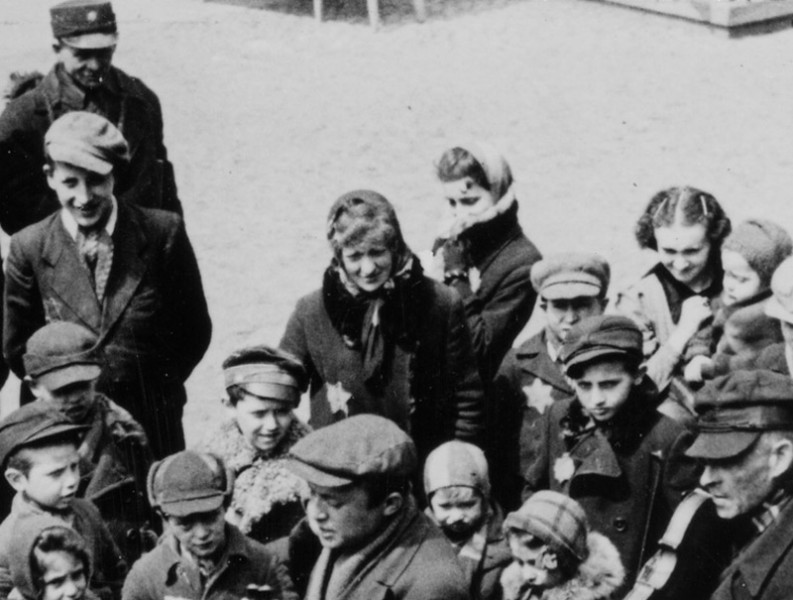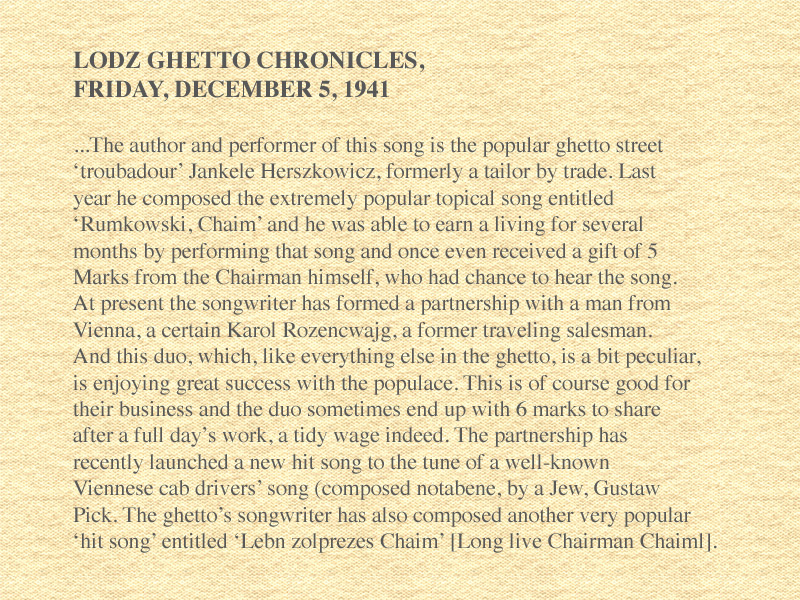Story:
Street performers in the ghetto
Particularly in the early years, street entertainers performed regularly, expressing the struggle and suffering of daily life in the ghetto. The street performers were able to offer the populace a source of much-needed humour, particularly in the form of parodies of popular songs, in response to the worsening conditions in the ghetto. The performers sang for an audience hungry not only for food but also for freedom of expression. Their spontaneous performances of social and political satire were much appreciated in an environment where information was highly controlled and censored.
Out of the many street performers in the ghetto, Yankele Hershkowitz is particularly well known. Initially he performed alone, but was soon accompanied by a Viennese violinist, Karl Rosenzweig. An unlikely duo, forced together by strange circumstances, they always attracted a crowd. Survivors recorded Hershkowitz’s songs after the war.
The Jewish authorities increasingly censored these performances, and they ceased at the end of 1942. After the mass deportation of September 1942, the singers, including Yankele Hershkowitz, could not remain on the streets, as no one could “pay” them in food or listen to them because the ghetto had been converted into a large and productive factory. Hershkowitz continued to perform in the factory where he found work.
Here are some lyrics from Yankele Hershkowitz’s song, “What Shall We Do, Jews?’:
What shall we do, Jews
When there is such tragedy?
What shall we do, people?
We have to eat, every day!
Because the stomach doesn’t want to know
Anything about our ghetto business,
It only screams and demands
To eat and eat some more.


